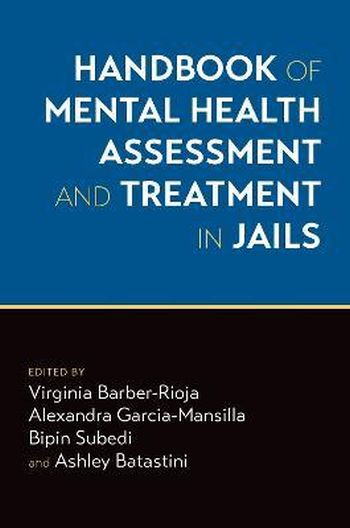
Jails are the largest service providers of mental health in the United States. Unlike prisons, where all incarcerated individuals have been convicted of a crime and are serving long sentences, most individuals incarcerated in jails are waiting a disposition to their court case, making this pretrial environment particularly chaotic. Jail detainees have higher prevalence rates of mental illness, trauma, suicide, and substance use than individuals in the community or even in prisons. Adequate mental health interventions are essential to prevent suicide; to mitigate acute psychopathology, retraumatization, and stress; and to reduce recidivism. Mental health practice and research in jails requires specialized knowledge, but the vast majority of the literature on correctional mental health is derived from prison research.
The Handbook of Mental Health Assessment and Treatment in Jails draws upon existing research and the experiences of a range of correctional psychologists, psychiatrists, and researchers to provide guidance for working with people with mental health needs in jails. The Handbook both advances knowledge in correctional mental health in the jail setting and serves as a call to action for researchers to continue developing a scientific base for jail correctional mental health.
Chapters include legal and ethical considerations in jails, reentry issues that are specific to jails, interventions for competency restoration in jail detainees, assessment and treatment of neurodevelopmental and neurocognitive disorders, special considerations for rural jails, and special populations such as adolescents and women. This book will serve as a go-to guide for mental health professionals who provide clinical services in jails, jail administrators, and researchers.